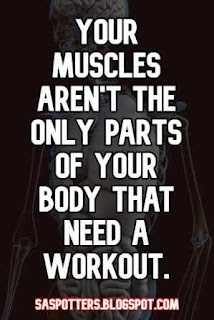 |
| You can't eat them on their own. |
Fruit and vegetables are extremely healthy. The fiber keeps your digestive system in check, cleans out toxins and feeds good gut bacteria. Spinach, lettuce, blueberries, peaches, bananas, lemons, grapes, and avocado are super foods.
These plant foods have almost all of the vitamins, minerals, electrolytes, antioxidants and other plant compounds that you need to be healthy.
In fact, a fruit-only diet helps you to lose unhealthy weight in a matter of days. Any balanced diet is incomplete without fruit and vegetables. They are the opposite of junk food.
There isn't a single food that you can eat outside of moderation, though. Even too much water will damage your health. Green leafy vegetables like bok choy and even fruit salad have their own disadvantages if you eat too much of them.
If fruit and vegetables are so good for you, how can they damage your health if you eat too much of them? Is your health negatively affected when you don't balance fruit and vegetables with other healthy food?
Disadvantages of eating only fruits and vegetables
1. Low in fat, protein, iron and zinc
2. Low in calories
3. Decreases appetite
4. Digestive issues like diarrhea, bloating and gas
5. Should not be eaten before, during or after exercise
6. Limited mineral (calcium and iron) absorption
7. Risk of disease contamination and pesticide residues
8. Increased risk of kidney stones
 |
| Eat other foods for balance. |
1. Low in fat, protein, iron and zinc
Fruit and vegetables are low in fat
That equates to 13.3 kilograms (or over 29 pounds) of bananas, 26 kilograms (or over 57 pounds) of apples, 49 kilograms (over 108 pounds) of potatoes, or over 18 kilograms (over 39 pounds) of carrots. This would be needed to reach the bare minimum of 44 grams of fat.
Compare that to less than 83 grams (under 3 ounces) of nuts, 414 grams (under 15 ounces) of eggs, or 327 grams (under 12 ounces) of salmon.
It is clear to see that you will run into a fat deficiency if you eat fruit and vegetables without another good source of fat.
Fat deficiency can lead to the following health problems:
1. Hunger
2. Dry skin
3. Hormonal imbalances
4. Poor temperature regulation
5. Extreme mental fatigue
6. Mental decline
7. Depression
 |
| Eat enough fat every day. |
Low in protein
That equates to 4.6 kilograms (over 10 pounds) of bananas, 17 kilograms (over 37 pounds) of apples, 2.2 kilograms (over 4 pounds) of potatoes or more than 4.4 kilograms (over 9 pounds) of carrots. This is the bare minimum of protein intake per day.
Compare that to 220 grams (under 8 ounces) of nuts, 365 grams (under 13 ounces) of eggs or 225 grams (under 8 ounces) of salmon.
Protein deficiency can lead to:
1. Edema (swollen, puffy skin)
2. Fatty liver
3. Brittle skin, hair and nails
4. Muscle loss and muscle weakness
5. Bone fractures
6. Stunted growth
7. Increased frequency and severity of infections
8. Increased appetite (despite increased food intake)
 |
| Share this. |
Low in iron and zinc
Key minerals like iron and zinc are extremely important for your overall health. They are most common in protein-rich foods like meat, fish, eggs, dairy, nuts, beans, legumes, seeds and lentils. Notice that fruit and vegetables are not the best sources of iron and zinc.
Iron deficiency can lead to:
1. Extreme tiredness and fatigue
2. Paleness
3. Shortness of breath
4. Headaches and dizziness
5. Heart palpitations
6. Skin and hair issues
7. Tongue and mouth issues
8. Restless legs
9. Brittle, spoon-shaped nails
10. Unusual cravings
11. Anxiety
12. Cold hands and feet
13. Frequent infections
 |
| Eat enough protein-rich food. |
Zinc deficiency can lead to:
1. Growth retardation
2. Loss of appetite
3. Impaired immune function
4. Hair loss
5. Diarrhea
6. Delayed sexual maturation
7. Impotence
8. Eye and skin diseases
 |
| Get enough zinc. |
2. Low in calories
Fruit and vegetables are surprisingly low in calories. This is great for people who need to massively reduce their caloric intake, but it isn't so good for a healthy, long term diet.
Bananas are 75% water. Apples are 86% water. Potatoes are 79% water. Carrots are 88% water. This doesn't leave much room for calories.
Severe calorie restriction can lead to:
1. Weak bones
2. Low metabolism
3. Moodiness and depression
4. Infertility
5. Weight gain
6. Low energy levels
7. Weak immune system
8. Mental decline
9. Lack of motivation
10. Constant hunger cravings
11. Addictive behavior
12. Hormonal imbalances
13. Overall weakness
3. Fruit and vegetables decrease appetite
If you eat too many calories every day (as most of us do), fruit and vegetables can help. They will decrease your appetite. If you eat too many of them (and not enough of other foods), though, you risk decreasing your appetite too much.
This will make it harder to stomach the idea of food.
Fruit and vegetables decrease appetite because of their high water and fiber content. Fiber cannot be digested. Your digestive system takes a long time to process fiber. The high water content adds a lot of nutrient-free bulk to the hard-to-digest fiber. This keeps your digestive busy.
You won't feel hungry for food because your digestive system will still be busy processing your last meal. This is why fruit and vegetables lead to such rapid weight loss.
 |
| Never overdo it. |
4. Fruit and vegetables can cause digestive issues like diarrhea, bloating and gas
This is especially true if you eat a lot a fruit and vegetables at once after you've avoided them for a long period of time.
We've already discussed how fruit and vegetables are harder for your digestive system to process than unhealthy, processed food. You can run into digestive issues if your digestive system isn't adept at digesting the fiber in fruit and vegetables. This can lead to bloating, diarrhea and gas.
The solution is quite simple. Eat less fruit and vegetables, but eat them consistently, so that your digestive system can to adapt to the new food.
 |
| Look after your digestive health. |
5. Fruit and vegetables should not be eaten before, during or after exercise
The fact that blood redirects to the digestive system after eating food is the reason behind fatigue, sleepiness or lethargy after a large meal.
This will decrease energy levels and, therefore, exercise performance.
Opt for foods that give you quick energy and digest faster. This will give you immediate energy for your workout, sustainable energy during your workout and better recovery after your workout.
 |
| Timing is everything. |
6. Fruit and vegetables limit mineral absorption
Important minerals include calcium, phosphorus, potassium, sulfur, sodium, chlorine, magnesium, iron, cobalt, copper, zinc, manganese, molybdenum, iodine, and selenium.Oxalates are anti-nutrients that are found in plant foods. They block the absorption of minerals. Oxalates are very common in green leafy vegetables, other vegetables, fruit, cocoa, seeds and nuts. They bind to minerals and escort them out of the system via urination or defecation.
Your body makes oxalate on its own. Vitamin C is also converted into oxalate.
Spinach might be high in calcium, but the high oxalate content in spinach blocks the majority of the calcium from being absorbed.
This study found that when woman drank milk and ate spinach at the same time, the calcium from milk was absorbed without hindrance.
The point of this study is to show that while the oxalates in certain food might stop us from absorbing the minerals in that specific food; it won't stop us from absorbing the minerals from other foods.
To prevent nutrient deficiencies (and mineral deficiencies in this case), eat a variety of different foods so that your body can get all of the nutrients that it needs.
 |
| Strive for balance. |
7. Risk of disease contamination and pesticide residues from fruit and vegetables
The fruit and vegetables themselves aren't the only things that increase the health risks associated with a fruit and vegetable-only diet.
Food-borne diseases spread most rapidly through fruit and vegetables. Bacteria, parasites, chemicals and viruses cause over 200 different diseases. This includes diarrhea and cancer (click the link for more information).
Healthy foods are good for our bodies, but they are good for germs as well. This is why healthy food is more likely to go off compared to unhealthy food. The wholesomeness of food directly impacts its germ-spreading potential.
Plants fight against harmful germs right from the time that their seeds germinate. This battle doesn't end after harvest time. Diseases have a chance to inhabit natural food along every step of the growing, harvesting, transportation, selling, buying and storage process.
Pesticides are used to try and negate some of the risks of disease, but the pesticides themselves can cause us harm (in the same way that they kill off germs).
Avoid this disadvantage of fruit and vegetables by cleaning all of your fresh produce regularly. Don't buy more than what you can eat before it starts to spoil.
 |
| Eat clean. |
8. Risk of kidney stones from fruit and vegetables
This relates to the point about how fruit and vegetables may limit mineral absorption. Oxalates bind to minerals and escort them out of the body. Oxalates can bind to calcium, for example, to form calcium oxalate. They may also bind to iron to form iron oxalate.When mineral oxalates aren't successfully eliminated thought defecation or urination, they can form kidney stones.
Oxalates and minerals are natural compounds - there is no need to try and avoid these things altogether. You are more likely to die from the absence of minerals than from kidney stones.
Oxalates are already present in the urinary tract. They usually remain dissolved and don't cause any issues. The problem comes in when they don't stay dissolved and therefore cause kidney stones.
In some cases, oxalates and minerals form crystals that turn into kidney stones. This usually happens when oxalates are high (and when urination frequency or volume is low).
80% of kidney stones come from calcium oxalate. A low-oxalate diet may help to prevent kidney stones.
The best advice to prevent a variety of health complications is to eat a variety of different foods. You can't rely on one type of food exclusively for the various reasons listed above. Stay Strong!
 |
| Support our website and buy this awesome Sweatshirt. |

No comments:
Post a Comment